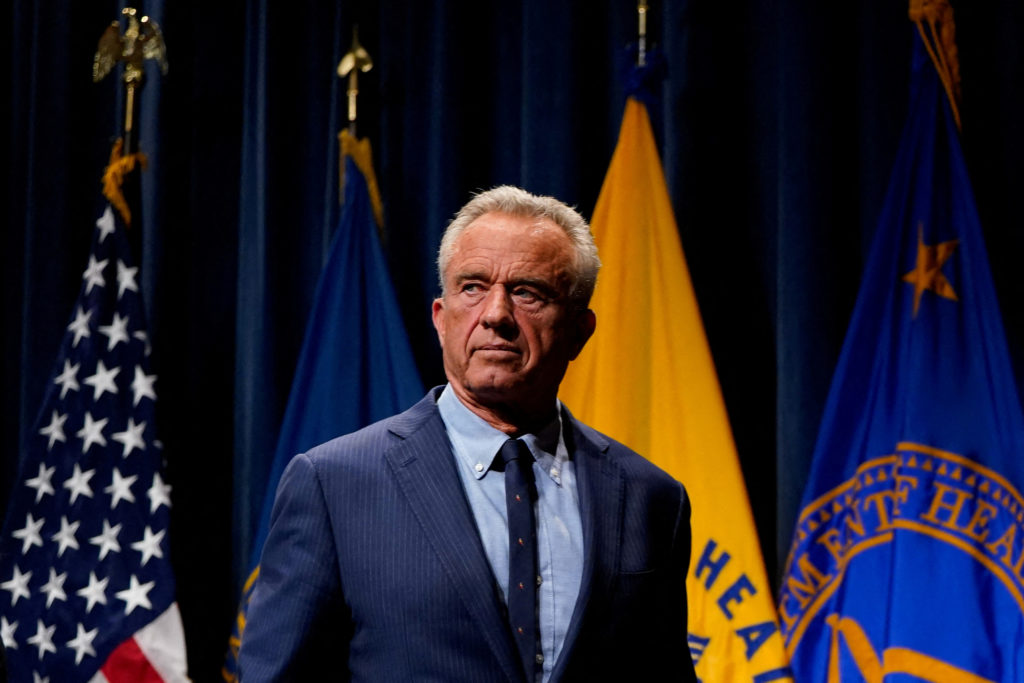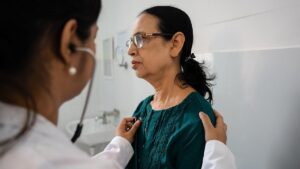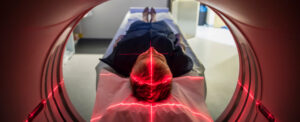
FILE PHOTO: U.S. Health and Human Services (HHS) Secretary Robert F. Kennedy, Jr. leaves the stage after discussing the findings of the Centers for Disease Control and Prevention’s (CDC) latest Autism and Developmental Disabilities Monitoring (ADDM) Network survey, at the Department of Health and Human Services in Washington, D.C., U.S., April 16, 2025. REUTERS/Elizabeth Frantz/File Photo
NEW YORK (AP) — U.S. Health Secretary Robert F. Kennedy Jr. on Wednesday announced the appointment of eight new advisers to the Advisory Committee on Immunization Practices (ACIP), replacing the panel he dismissed earlier this week. The new appointees include a mix of scientists and professionals, some of whom have been vocal critics of COVID-19 vaccines and pandemic policies.
The decision to overhaul the panel has stirred significant debate within the medical community. Among the new members is Dr. Robert Malone, a former mRNA researcher known for his controversial views on COVID-19 vaccines. Also appointed is Dr. Martin Kulldorff, a co-author of the Great Barrington Declaration, which criticized pandemic lockdowns. The appointments have raised concerns about the future direction of U.S. vaccine policy.
Background and Reactions
Kennedy’s decision to “retire” the previous 17-member ACIP panel was met with criticism from doctors’ groups and public health organizations. They expressed fears that the new panel might align too closely with Kennedy’s views, which include reassessing longstanding vaccination recommendations. The ACIP, established in 1964, plays a crucial role in advising the Centers for Disease Control and Prevention (CDC) on vaccine use.
On Tuesday, Kennedy assured the public that the new panel would consist of “credentialed scientists” and not “anti-vaxxers.” However, the inclusion of figures like Dr. Malone, who has propagated conspiracy theories about COVID-19 vaccines, has intensified scrutiny. Dr. Malone has claimed that the vaccines cause a form of AIDS and has downplayed the severity of measles outbreaks.
New Appointees and Their Controversies
In addition to Malone and Kulldorff, the new panel includes Dr. Cody Meissner, a former ACIP member with extensive experience in pediatric infectious diseases. Meissner has previously served on both the ACIP and the FDA’s vaccine advisory panel, where he voted against a broad rollout of COVID-19 booster shots, a decision later overridden by the FDA.
Other appointees include:
- Vicky Pebsworth, a regional director for the National Association of Catholic Nurses, linked to the National Vaccine Information Center, known for spreading vaccine misinformation.
- Dr. James Hibbeln, a former NIH group leader in nutritional neurosciences.
- Retsef Levi, a professor of operations management at MIT.
- Dr. James Pagano, an emergency medicine physician from Los Angeles.
- Dr. Michael Ross, an obstetrician and gynecologist from Virginia.
While some appointees bring significant expertise, the presence of figures associated with vaccine skepticism has alarmed many in the health community.
Implications for Vaccine Policy
The ACIP’s recommendations are typically adopted by the CDC and heavily influence national vaccination programs. Kennedy’s overhaul of the panel and his past criticisms of vaccine policies suggest potential shifts in how vaccines are recommended and administered in the U.S.
Jason Schwartz, a health policy researcher at Yale University, noted,
“If you are to exclude any reputable, respected vaccine expert who has ever engaged even in a limited way with the vaccine industry, you’re likely to have a very small pool of folks to draw from.”
This underscores the challenge of balancing expertise with perceived impartiality.
Kennedy, confirmed by the U.S. Senate in February, had initially promised not to alter the vaccination schedule. However, his recent actions, including ignoring ACIP’s recommendations on COVID-19 shots for children and pregnant women, indicate a willingness to diverge from established protocols.
Looking Ahead
The next ACIP meeting is scheduled for late June, with votes expected on vaccines for flu, COVID-19, HPV, RSV, and meningococcal bacteria. The agenda remains unposted, leaving the public and professionals alike speculating on the potential outcomes of the newly appointed panel’s first session.
A spokesperson for the Department of Health and Human Services did not clarify whether additional members would be appointed to the ACIP or if the panel would remain at eight members. The developments in the coming months will be closely watched as they could signal significant changes in U.S. vaccination policy.







